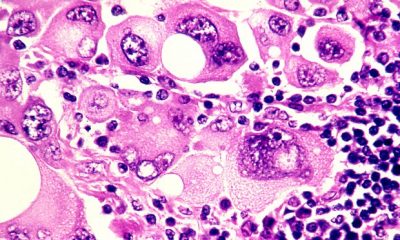A nonprofit is partnering with performance artists to stimulate end-of-life discussions.
By MIRCHELLE LOUIS

No one likes to think about dying, so we don’t. We avoid the “elephant in the room” and talk around the topic. But what happens when, because of some life-threatening circumstance, you are forced to confront the idea of death? At Cancer Support Community North Texas (CSCNT), we see this happen far too often. Emotions run high, making conversations about death and end-of-life care daunting and overwhelming, sometimes even resulting in decisions that would not have been made if there had been some advance conversation and planning.
So what if we don’t avoid that “elephant?” What if we address it head-on, maybe even laugh about it? Maybe embrace the fact that death, like birth, is part of the natural order of things, and that we’re all going to die someday? In the hope of making the important conversation about death a little less overwhelming, and a whole lot less intimidating, CSCNT has partnered with The Final Acts Project, a community-based health education initiative that serves as a catalyst to stimulate end-of-life discussions, planning and legacy building through theater, creative arts and the humanities.
The Final Acts Project, the brainchild of Deborah Kaercher, Ph.D., an expert in public health and grassroots startups, was created to humanize the end-of-life experience. The initiative uses the performing arts and theater to ease the stress and anxiety of planning for our final days. By using laugh-out-loud, single-act performances and “bucket list” parties, Kaercher’s group encourages us to have the tough conversations we would otherwise avoid.
One performance that we just hosted in Dallas was “The Dead Giveaway,” a one-woman, audience-focused conversation that confronted the character’s impending death from cancer as she gave away her possessions to audience members. The interactive quality of this performance — which Kaercher’s group performs across the country — engaged the audience on a very personal level, encouraging empathy and self-reflection. More importantly, the talk-back following the performance addressed questions from the audience about end-of-life planning and advanced directives.
What particularly interests CSCNT about this unique way of broaching a tough subject is that it not only opens doors to better communication between spouses, families and close friends, but it can also lead to better care from medical professionals, social workers and loved ones. That is, by being better prepared, by being up front about our wishes and expectations, we can help direct the care we receive from others.
Rooted in personal experiences as well as evidence-based findings, the statistics on end-of-life care speak volumes: According to data from the Dartmouth Atlas of Health Care, more than one in four Medicare beneficiaries experiences an intensive care unit (ICU) stay during the last month of life. A quarter of Medicare deaths occur in the hospital, even though, in American public opinion surveys, most say they’d prefer to die at home if they were terminally ill. Medicare beneficiaries also would almost always choose to die without mechanical ventilation or medications that would make them feel worse all the time, and yet that describes the dying process for many in our nation’s critical care units.
The good news is that the times are changing. Medicare is now encouraging people to have a greater say in their desired end-of-life care. In fact, they’re now reimbursing doctors for time spent with patients having these conversations. And, organizations like ours and The Final Acts Project are collaborating to encourage people to take more control by doing advance planning that makes talking to doctors and families about end-of-life wishes easier…on everyone.
CSCNT and other cancer support organizations are already well-poised to have these conversations, with existing comprehensive systems of support in place. Now, the goal is to make it feel OK to “talk death” sooner and more comfortably with the people closest to us. So, let’s do this! Lights, camera, action…!
Complete Article HERE!
